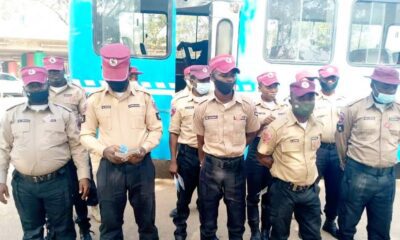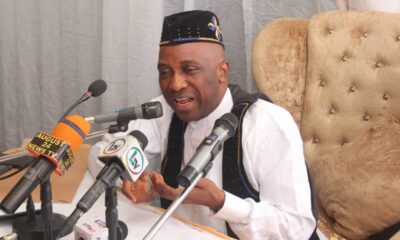Starting a career during a global pandemic is daunting, especially for those working in the medical field.
In early 2020, third year University of Saskatchewan (USask) medical students were in the midst of clinical rotations. However, COVID-19 brought things to a halt in March 2020. Just over two months later, they were able to return to rotations, with some modifications.
In past years, fourth year students travel across the country and sometimes even abroad, to experience different cities and medical specialties they offer. However this year, they only did rotations within the province, doing so during unprecedented times.
Read more:
Why are COVID-19 cases quickly rising among Canadian university students?
“It’s the same situation that every medical student in Canada was in,” USask undergraduate medical education associate dean Dr. Meredith McKague said.
“It wasn’t a unique situation for our students and students recognized that.”
This brought on challenges when it came time to apply for residency.
“You’re choosing to move somewhere for a big chunk of your life and really banking that it’s going to work out,” fourth year USask medical student Sophie Mcbean said.
“Not having met the people in person or visiting the city in person is quite a risk to take.”
Read more:
When is it OK to travel in Saskatchewan? Follow COVID-19 guidelines, keep bubbles small: experts
The application process was a lot different this year. Through the Canadian Resident Matching Service (CaRMS), the future doctors apply for programs across the country. Normally they would have experienced the programs in person and had interviews in person, but this year everything was virtual.
“All the programs did a really great job of doing online socials and information sessions and try to give us a taste for their program and their group, but obviously it’s not the same,” another fourth year student, Sam Molot-Toker said.
After interviews, the programs and students both rank each other. A CaRMS algorithm matched students to programs earlier this week. Medical students across the country anticipated the fate of their futures, and at the same time all got a glimpse of what’s to come.
“It was anxiety inducing but also such a relief,” Mcbean said.
“It was just so nice to finally have this part of my life planned.”
Read more:
COVID-19 patient record broken in Saskatchewan ICUs
Mcbean will be practicing pediatrics in Northern Ontario and Sam Molot-Toker will be in Winnipeg for a neurosurgery residency.
While both will be leaving the province, Mcbean believes more of her classmates will be staying in Saskatchewan after not being able to venture further this past year.
“I think there’s a lot more people who probably chose to stay in province because it’s less risky having known a program and knowing the staff you’re going to be working with. But also, you get to maintain the connections you already have in Saskatchewan,” she said.
Every year, there are some students who don’t match on the official day. They will have a chance to have a second iteration, going through the same process again. They will find out by May 20 if they match.
Read more:
University of Saskatchewan plans to reopen for fall semester
For Mcbean and Molot-Toker, they say they are excited for this next chapter, even though it will be through some challenging times in healthcare.
“It’s hard to believe it’s been four years already. I’ve made some of my closest friends here and I’ve fallen in love with the city,” Molot-Toker said.
“We still have our jobs, we still have our futures ahead of us, so despite everything I do recognize that we’re really lucky for that as much as our education was disrupted.”
There are some extra precautions being taken before they can start their careers, including potentially having to isolate if they move provinces.
Read more:
SHA warns of COVID-19 variant exposure at Canadian Plasma Resources in Saskatoon
“Prior to putting our residents in clinical care domains, we want to make sure not only they have access to the protective equipment, but they are actually vaccinated,” USask postgrad medical education associacte dean Dr. Anurag Saxena said.
Residency starts July 1 after the students finish courses and complete a licensing exam. Then, they’ll officially be doctors.
Must See
-
Other Sports
/ 4 months agoTransfer: Galatasaray target January move for Onyedika
Turkish Super Lig champions Galatasaray are lining up a January move for Club Brugge...
By Amaka Esther -




Other Sports
/ 4 months agoMan Utd too big for you – Ten Hag told to leave club
Former Tottenham Hotspur star, Darren Bent has claimed that Manchester United are too big...
By Amaka Esther -




Other Sports
/ 4 months agoEPL: Yorke tells Ten Hag not to allow Man Utd star near first team
Manchester United legend Dwight Yorke has told manager Erik ten Hag not to allow...
By Amaka Esther








